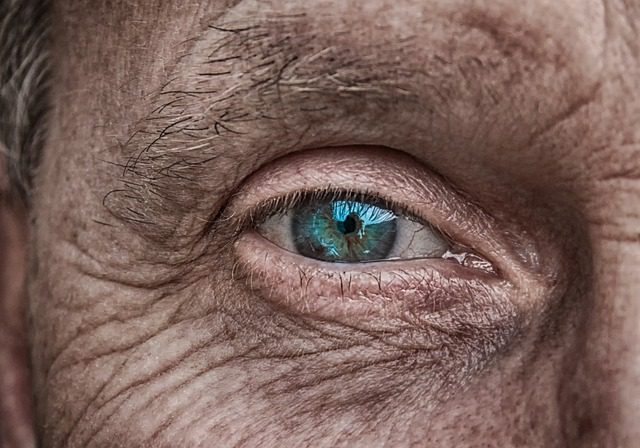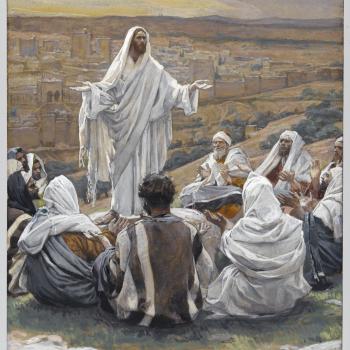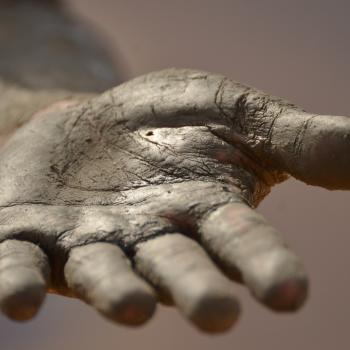“Purity” is a term reserved today for the properties of vitamins or the quality of drinking water or specialty treatments at spas. It has long sense lost much moral weight with people, and “purity culture” actually now has deeply objectionable connotations and a sad track record. Ludolph, however, sees Jesus’ words in the Sermon on the Mount about adultery and lust as words of purity spoken by the Author of purity.
Self-indulgence in deed is condemned by the law, but the author of purity condemns self-indulgence in thought as well.
Interesting how Ludolph refers to lust as “self-indulgence” and thus self-indulgence, implicitly, as impurity. He avoids the all-too-common tendency of many ancient authors to place the source of the problem in the “beautiful visages of women,” and centers it squarely within the soul of the one who is lusting. “Their behavior is a sign of interior corruption and gives evidence of a certain weakness and degradation.”
Purity, then, is an inner resistance to self-indulgence, a much larger issue than refraining from sex outside of marriage. In fact, as Ludolph explores this passage, he begins to address “lustful thoughts” entirely in the context of desires, and of course self-indulgence is nothing more than gratification of desire without reference to time, place, occasion, relationship, morals, or even hierarchies of desire.
Purity is connected to vision. Scripture clearly relates the two: “The pure in heart shall see God.” “The eye is the lamp of the body. If your eyes are good, your whole body will be full of light.” And here, in the Sermon: “If your right eye causes you to sin, gouge it out and throw it away.” Ludolph reminds us of Ambrose’s warning: “What the eye sees, the heart desires.” It’s the principle of all advertising.
Impurity is easy to measure when it comes to egregious lust. It is said that porn sites attract more visitors each month than Amazon, Netflix, and Twitter combined, and that 90% of American boys are exposed to porn by the time they’re 18 years old. Lust may be more than self-indulged sexual desire, but it’s certainly not less.
So back to the issue of vision. I remember the little Sunday school chorus: “Oh be careful little eyes, what you see…” Perhaps some will say that it’s a fear-mongering ditty, and we don’t want to raise our children with anxieties about what they may be exposed to. Perhaps. It didn’t make me anxious about purity but rather simply cognizant that what crawled into my head through my eyes would live there (as my small son once described it). Ludolph even quotes the Roman philosopher Seneca, who counseled something similar: “If you want to destroy the worldly desires that lust provokes, close your eyes and ears to what you have forsaken.”
What have we who belong to Jesus Christ forsaken? We have forsaken our own wills. “Your will be done.” “Not my will but yours.” “Let it be to me according to your word.” Thus self-indulgence (whether that indulgence be defined by sex, fashion, property, leisure, security, entertainment, or fame) is out of step with the way of the Author of Purity. To keep in step with him and his way, the ancient advice stands: flee the occasions of indulgence. Recognize the places, people, and situations that lead you off the path of purity. Seneca again, via Ludolph: “Whenever I have been out in the company of others I return home more lascivious, more ambitious, more avaricious, indeed more vicious.”
Jesus is indeed the Author of Purity, but he is not the Author of Scarcity or the Author of Deficiency. On the contrary, one way to counteract the lust of self-indulgence is gratitude, for the Author of Purity is also the Author of Abundance and Joy and Creative Goodness and Divine Wisdom. Relish what he has given with gratitude and pleasure, thus empowering you to deny yourself what he has not.
Note: For a brief introduction to Ludolph of Saxony, a medieval “best-selling author,” read this.














